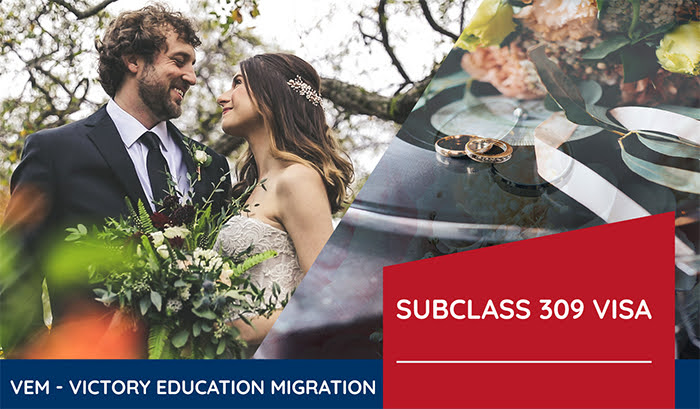Australian Partner Visa: Requirements and Important Notes
It’s estimated that around 40,500 Partner visas will be granted in 2024-25. How to choose the right Partner pathway and prepare for it? Keep reading for expert advice from our qualified consultant!
Mục Lục
- 1 What is an Australian Partner visa?
- 2 Types of Australian Partner visas?
- 3 Spousal or De-facto Relationship
- 4 Required documents for Aus Partner visa application
- 5 Australian Partner Visa Cost
- 6 Common reasons that a Spouse visa Australia gets refused
- 7 Important notes when applying for a Partner visa Australia
- 8 Interview experiences for Australian Partner visas
- 9 Common questions during a Partner visa interviews
What is an Australian Partner visa?
Australian Partner Visas enable the spouse or prospective spouse of Australian citizens, permanent residents, or eligible New Zealand citizens to migrate to Australia. You can apply for both temporary and permanent Partner Visas simultaneously.
To qualify for a Partner Visa, you must be married or in a de facto relationship for at least 12 months and meet other specific requirements. Once granted a Partner Visa, you and your partner can establish your relationship and enjoy long-term residency in Australia.
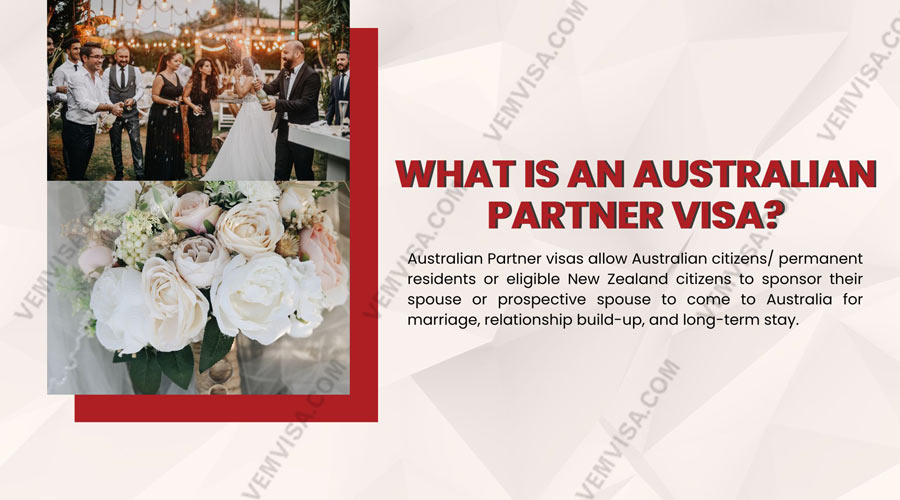
Types of Australian Partner visas?
There are three main pathways for Partner Visas in Australia:
- Prospective Marriage Visa (Subclass 300): For those intending to marry an Australian citizen, permanent resident, or eligible New Zealand citizen.
- Partner Provisional Visa (Subclass 309) and Partner Migrant Visa (Subclass 100): The provisional visa allows you to live in Australia while your permanent visa is processed.
- Partner Temporary Visa (Subclass 820) and Partner Permanent Visa (Subclass 801): The temporary visa grants you initial residency, while the permanent visa provides long-term residency after proving the genuineness of your relationship.
Partner Temporary visa – Subclass 820/ 801
The Partner (Temporary) visa – Subclass 820 allows you and your partner to live in Australia temporarily. You must be in Australia (onshore) when applying for this visa.
After holding the Subclass 820 visa for 2 years, if your relationship remains ongoing and you both meet the requirements, you can apply for the permanent Partner Visa (Subclass 801).
Depending on your relationship’s circumstances, these two visas may be granted simultaneously or separately. If the relationship is assessed as genuine and long-term prior to application, the Australian Department of Home Affairs may grant the Subclass 801 visa immediately after the Subclass 820.
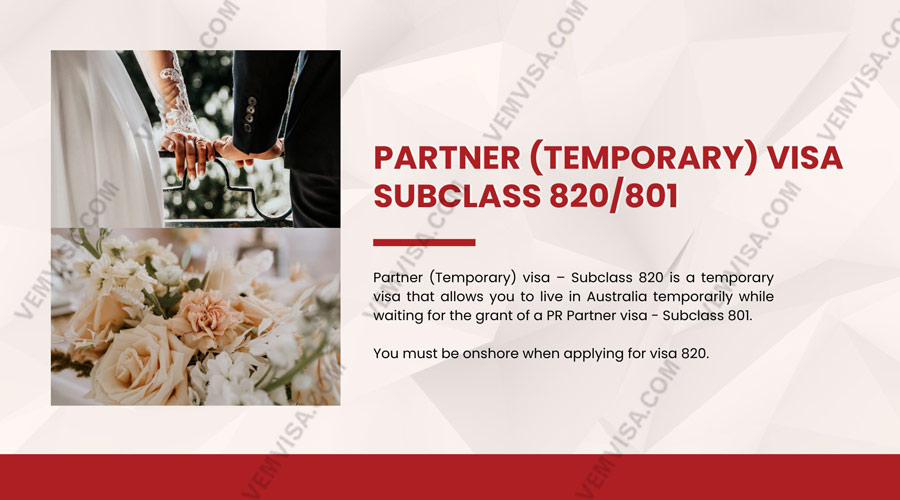
Partner (Provisional) visa – Subclass 309/ 100
The Partner (Provisional) visa – Subclass 309 enables the spouse or partner of an Australian citizen, permanent resident, or eligible New Zealand citizen to live in Australia temporarily. You must be offshore when applying for this visa.
Subclass 309 serves as the initial stage before applying for the permanent Partner Migrant Visa (Subclass 100). Once your relationship is assessed and deemed genuine, you can transition to permanent residency through the Subclass 100 visa.
Prospective Marriage visa – Subclass 300
The Prospective Marriage visa (Subclass 300) is a temporary visa for applicants who are outside Australia. It allows the prospective spouse or partner of an Australian citizen, permanent resident, or eligible New Zealand citizen to live in Australia for up to 15 months.
The Subclass 300 visa serves as the first step toward obtaining permanent residency through the Partner Visa (Subclass 820/801). During this time, you must marry your partner to continue the process for permanent residency.
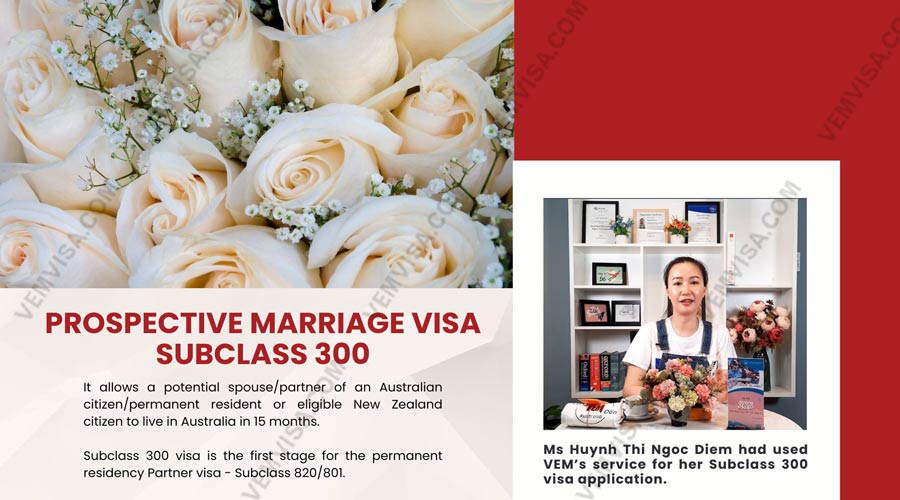
In addition to Partner visas, you can refer to other Australian Family visas. Contact VEM for further information.
Basic difference among three types of Australian Partner visas
Here are the differences and entitlements associated with holding the Subclass 300, 820, 801, 309, and 100 visas:
| Partner visas | Duration | Location | Entitlements |
| Subclass 300 | Temporary visa for up to 15 months. | Must apply while offshore. |
|
| Subclass 820 | Temporary visa valid until a decision is made on the permanent visa. | Must apply while onshore (in Australia). |
|
| Subclass 801 | Permanent visa. | Must apply after holding the Subclass 820. |
|
| Subclass 309 | Temporary visa while waiting for the permanent visa. | Must apply while offshore. |
|
| Subclass 100 | Permanent visa. | Must apply after holding Subclass 309. |
|
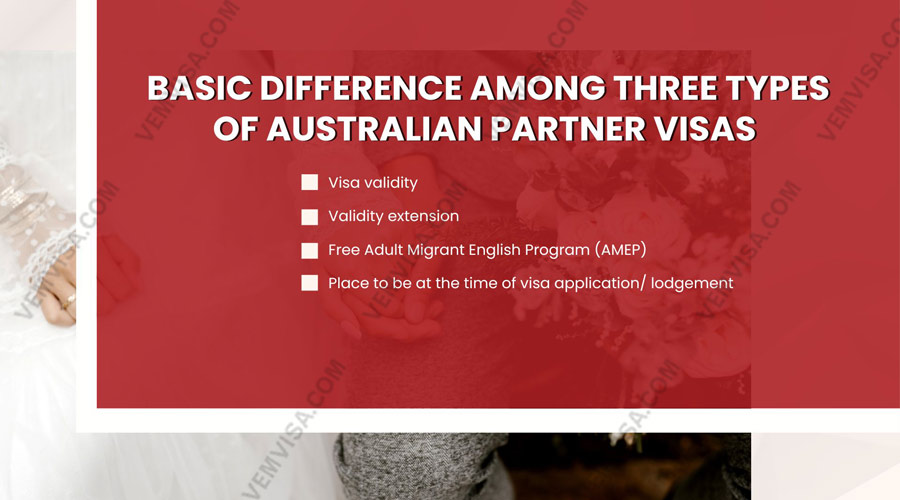
Spousal or De-facto Relationship
As mentioned above, when applying for an Australian marriage visa, you need to demonstrate that you are in either a spousal or de facto relationship.
Spousal Relationship
You are considered to be in a spousal relationship if:
- You are legally married to your partner, with the marriage recognized under Australian law.
- You and your partner have a mutual commitment to a shared life as a married couple (at least 12 months immediately before applying for the spouse visa), to the exclusion of all others.
- Your relationship is genuine and continuing.
- You live together, or you do not live separately and apart on a permanent basis.
De Facto Relationship
You are considered to be in a de facto relationship if:
- You are not legally married to your partner, but you share a mutual commitment to a life together, to the exclusion of all others.
- Have lived together for at least 12 months immediately before applying for the marriage visa
- Your relationship is genuine and continuing.
- You live together or do not live separately and apart on a permanent basis.
- You are not related by family.
Required documents for Aus Partner visa application
If you’re in a married or de facto relationship, the required documents for an Australian spouse visa application include:
Identification documents
- Certified copy of your passport
- ID card photos
- Certified copy of your birth certificate
- Certified copy of your marriage certificate (if married)
- Certified copy of any children you share in the relationship.
- Proof of divorce (if necessary)
- Proof of change of name, if applicable.
Relationship evidence
- Financial aspect: Proofs showing financial sharing: bank accounts, credit cards, bills, etc.
- Joint bank accounts: Showing shared finances.
- Utility bills: Joint accounts for power, water, or phone bills.
- Mail addressed to both of you: At the same place and time.
- Domestic aspect:
- Evidence of living together as a couple: Joint lease agreements or mortgage documents
- Share responsibilities
- Social aspect: Proofs show that your relationship is known by others.
- Long-term commitment aspect:
- The future plans
- Having children
- Having joint property ownership
Character documents
- Complete form 80
- Submit police certificates
Application forms: Online Partner Visa Australia application forms via ImmiAccount. Contact VEM for assistance.
To know whether you meet Marriage visa Australia requirements, contact VEM. Our consultant – Mr. Peter Cao, a registered migration agent (MARN: 1577877), with more than 10 years of experience in the migration field, will assist you.
Australian Partner Visa Cost
The main applicants need to pay at least AUD 9,095 to apply for an Australian marriage visa.
- For the additional applicants over 18 years old: the visa cost is AUD4.550
- For the additional applicant under 18 years old: the visa cost is AUD2.280
In addition, you will also need to cover costs for medical examination, police clearances, and biometrics.
Common reasons that a Spouse visa Australia gets refused
Partner visas can be refused for various reasons, but some common ones include:
- Not submitting a proper application with sufficient documents.
- Unclear and inaccurate documents.
- Providing conflicting information during the interview.
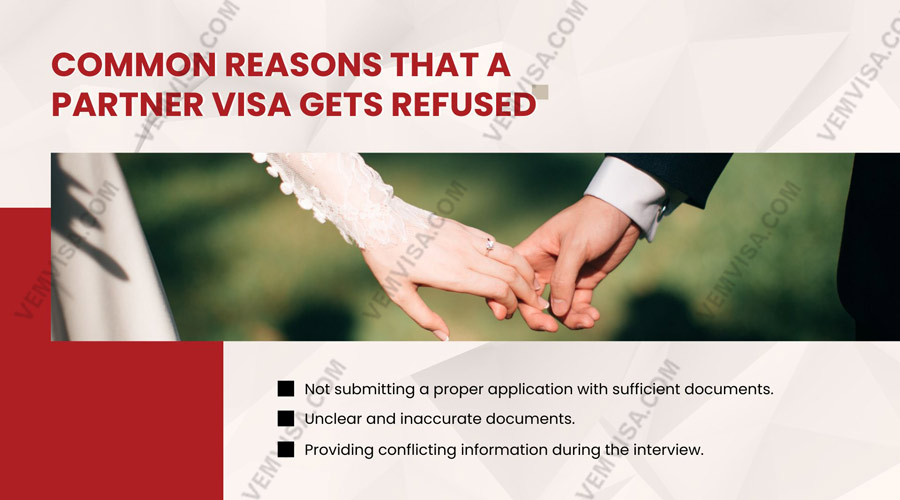
There is other detailed information which you can find in relevant writings on VEM’s website. Otherwise, you can contact VEM’s office for further support.
Please note that the Partner visa Australia cost may increase annually, and there is no refund in case your application is rejected. Therefore, thorough preparation is advisable.
Our qualified and experienced migration consultant (MARN: 1577877), who is also a member of the Migration Institute of Australia (MIA: 12648), stays updated with the latest Australian immigration changes. This ensures that VEM knows precisely how to prepare and lodge your visa application to meet all requirement for Partner visa Australia.
Important notes when applying for a Partner visa Australia
According to Australian marriage laws and partner visa policies, if you are sponsoring a spouse or partner for the Australian Partner Visa, you need to meet the following conditions:
- Not have sponsored another person for a second time under the prospective marriage visa or spouse visa.
- The most recent sponsorship under the partner visa category (either fiancé or spouse) must have been at least 5 years ago.
Australia has implemented these requirements to avoid sham marriage (or fake marriage) and ensure fairness for its citizens.
Interview experiences for Australian Partner visas
If an interview is conducted (which is rare), questions during the Couple visa Australia interview will typically cover personal information, employment history, daily routines, and details about your relationship with your partner.
Below are common questions during a Partner visa interviews:
- Personal information:
- What is your partner’s full name, date of birth, and place of birth?
- Is this the first marriage for both of you?
- Does your partner have any children? If so, what are their names and ages?
- Hobbies/ Habits:
- What are your partner’s hobbies or interests?
- Describe the most recent trip you took together.
- How did you first meet your partner?
- Working experiences: Questions about your partner’s occupation
- Relationship:
- Can you describe your relationship history?
- How long have you been in this relationship?
- How long have you and your partner been together?
- Future intentions:
- When do you plan to get married?
- What are your wedding plans?
- Will the wedding take place in Australia or another location?
- What are your plans after the wedding?
- Do you intend to have children?
You may receive a phone interview from a case officer at any time. Stay composed and ensure the information you provide matches what was submitted in your application.
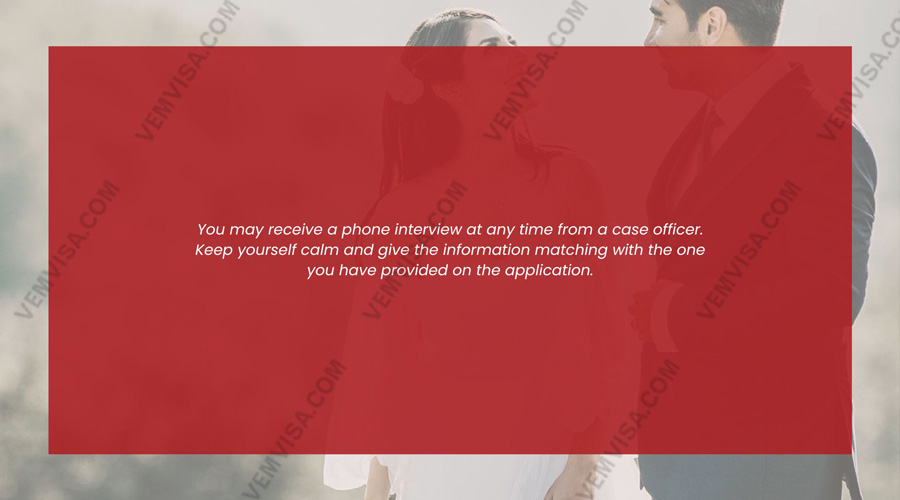
Common questions during a Partner visa interviews
- Personal information:
- What is your partner’s full name, date of birth, and place of birth?
- Is this the first marriage for both of you?
- Does your partner have any children? If so, what are their names and ages?
- Hobbies/ Habits:
- What are your partner’s hobbies or interests?
- Describe the most recent trip you took together.
- How did you first meet your partner?
- Working experiences: Questions about your partner’s occupation
- Relationship:
- Can you describe your relationship history?
- How long have you been in this relationship?
- How long have you and your partner been together?
- Future intentions:
- When do you plan to get married?
- What are your wedding plans?
- Will the wedding take place in Australia or another location?
- What are your plans after the wedding?
- Do you intend to have children?
You may receive a phone interview from a case officer at any time. Stay composed and ensure the information you provide matches what was submitted in your application.
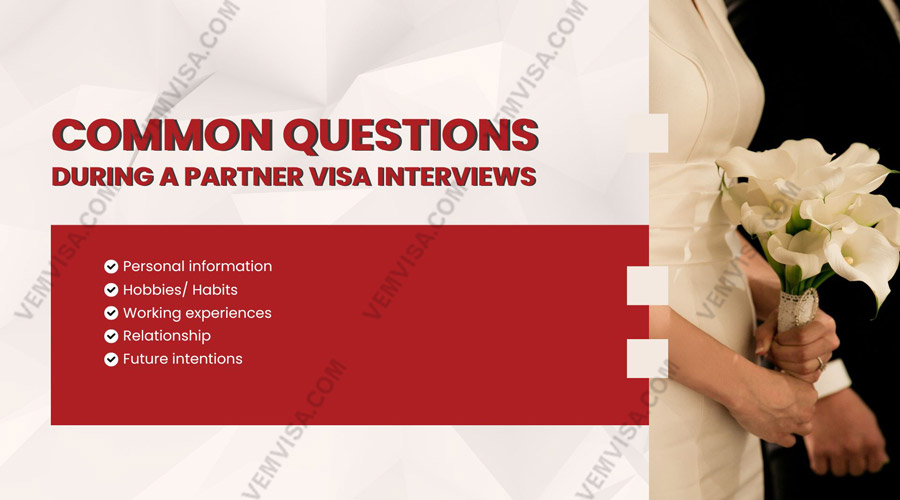
Contact VEM and consult with Mr. Peter Cao, a registered migration agent (MARN: 1577877) and member of the Migration Institute of Australia (MIA: 12648), to ensure your visa application is carefully prepared and submitted.
By: Peter Phong D Cao – Registered migration agent
(MARN: 1577877, MIA: 12648)
Frequently asked questions
You can sponsor applicants for a Spouse visa Australia up to two times.
Prepare answers to common questions as mentioned earlier, ensuring that both you and your partner’s answers are consistent.
No, evidence of financial capacity is not required.
If applying offshore, processing time is approximately 17 to 35 months. If onshore, processing time is around 6 to 15 months.
Contact VEM for guidance and assistance.
The Partner visa Australia cost varies depending on each type of visa. You can find them on VEM’s website.


